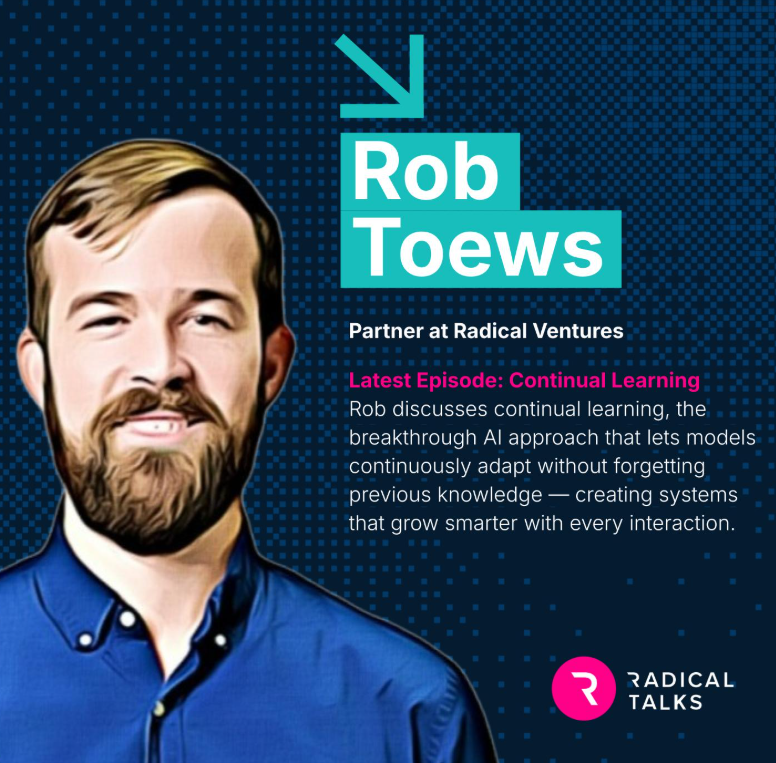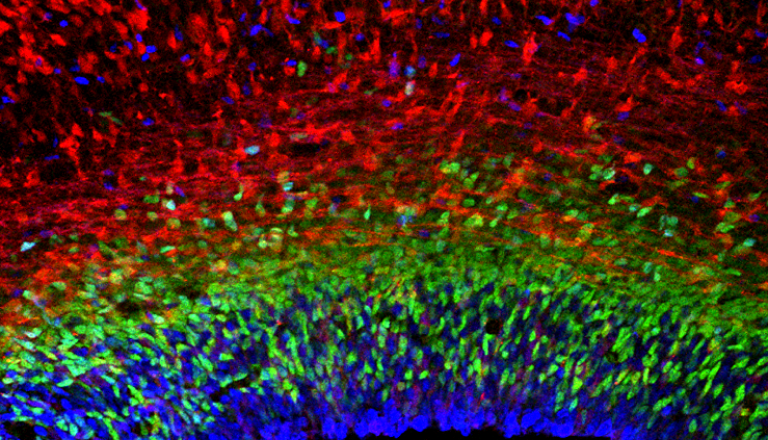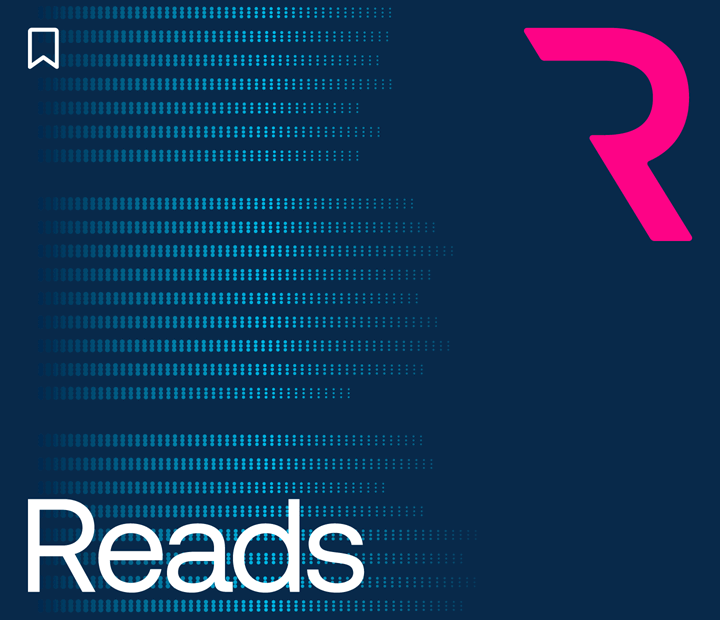A new season of the Radical Talks podcast launched this week with Radical’s Rob Toews and host Molly Welch discussing the challenge of building systems capable of continual learning and AI’s curse of catastrophic forgetting.
Rob delves into why this limitation exists and the early work being done to address it, examining the emerging AI paradigms that could bridge the gap between static models and truly adaptive intelligence. Continual learning holds the promise of AI systems that grow smarter with every interaction, creating unprecedented competitive moats. Ultimately, solving for continual learning may be the most critical step towards achieving AGI.
Listen now on Spotify, Apple or wherever you get your podcasts.
AI News This Week
-
Revisiting the AI Revolution with Jordan Jacobs (The Unlimited Podcast)
Jordan Jacobs, Managing Partner of Radical Ventures, predicts AI agent adoption among white-collar workers will jump from under 5% today to over 90% within two years, marking the most significant economic shift since the Industrial Revolution. Using Radical portfolio company Cohere‘s North platform as an example, Jordan describes how agentic AI may deliver productivity gains of 20-40% by functioning as sophisticated co-workers that access company data and take autonomous actions.
-
China is Quietly Upstaging America with its Open Models (The Economist)
Chinese AI companies are winning the “open-weight” model competition while American firms focus on proprietary systems. Since DeepSeek’s January release of an advanced free model built on a modest budget, Chinese models from Alibaba and others have gained significant traction globally. While American proprietary models generate far higher revenues and valuations, open-weight models enable easier customization for specific use cases and on-premises deployment.
-
The A.I. Spending Frenzy Is Propping Up the Real Economy, Too (NYT)
AI infrastructure investment is driving significant economic growth beyond just stock market gains. Companies will spend $375 billion globally on AI infrastructure in 2025, rising to $500 billion in 2026, according to UBS estimates. Investment in software and computer equipment accounted for a quarter of all U.S. economic growth last quarter, with data center construction spending now exceeding traditional office building investment.
-
How AI can Recode the Difficult Process of Drug Discovery (FT)
Despite pharmaceutical R&D spending increasing by almost 50% to $250 billion from 2012-2022, novel drug approvals have remained flat, with the number of new drugs per $1 billion spent on R&D halving every nine years since 1950. The pharmaceutical industry’s vast datasets and labour-intensive processes make it well-suited for AI applications, with generative AI creating synthetic datasets for simulations. Companies like Radical Ventures portfolio company Latent Labs are at the forefront of this transformation, working to make biology “programmable” and accelerate the drug discovery process through AI-driven approaches. Drugmakers are implementing “lab in a loop” strategies, feeding experimental data into AI models to generate disease predictions and treatments for human scientists to test.
-
Research: Large Language Models Show Signs of Alignment with Human Neurocognition During Abstract Reasoning (University of Amsterdam)
Researchers found that large language models and humans solve abstract pattern puzzles in surprisingly similar ways. While humans outperformed most AI models (82% vs 40% accuracy), the largest models (~70 billion parameters) matched human performance. Brain scans revealed that successful AI models organize pattern information similarly to human brains. Notably, reasoning-optimized models like DeepSeek-R1 showed more human-like thinking patterns, though with slightly lower overall accuracy.
Radical Reads is edited by Ebin Tomy (Analyst, Radical Ventures)





